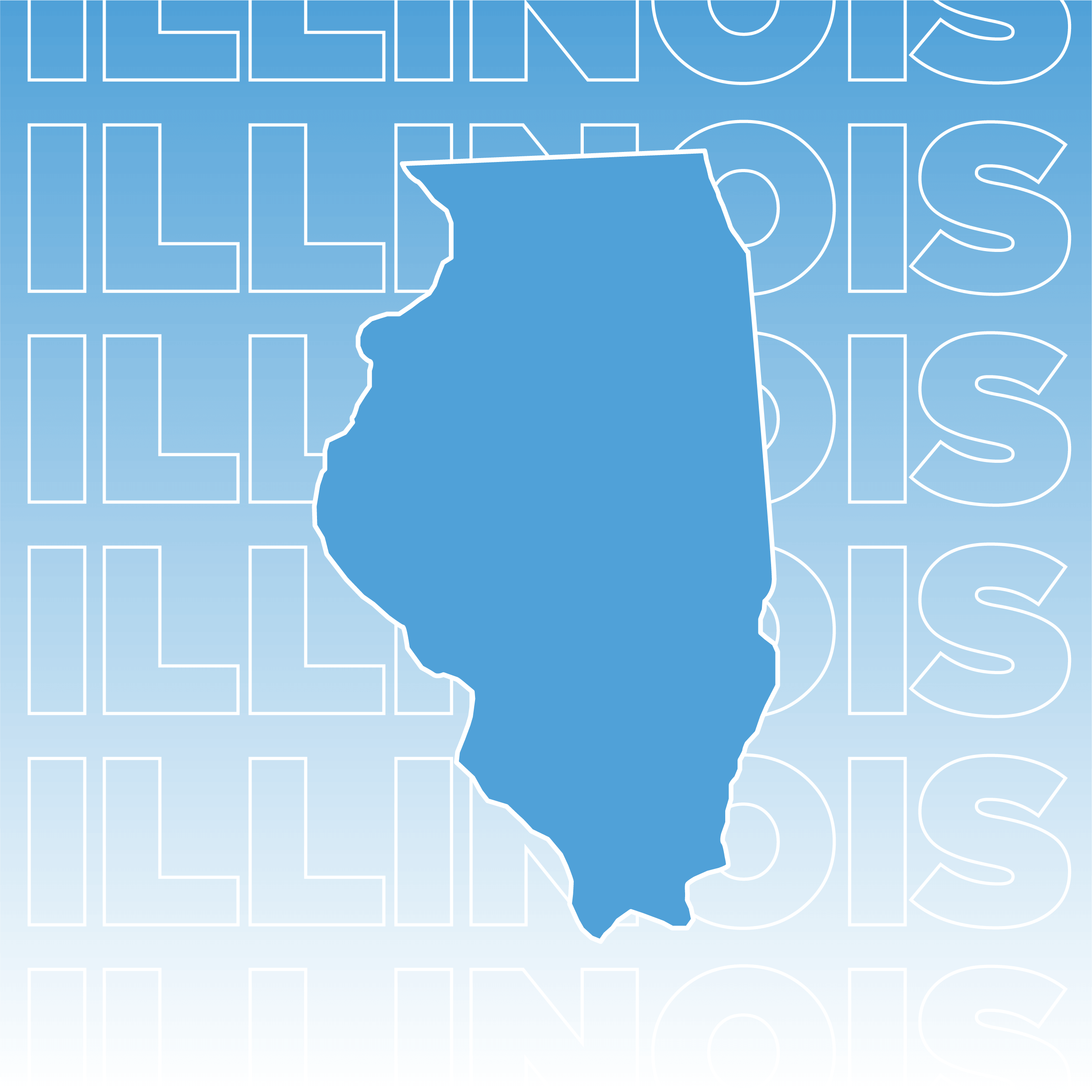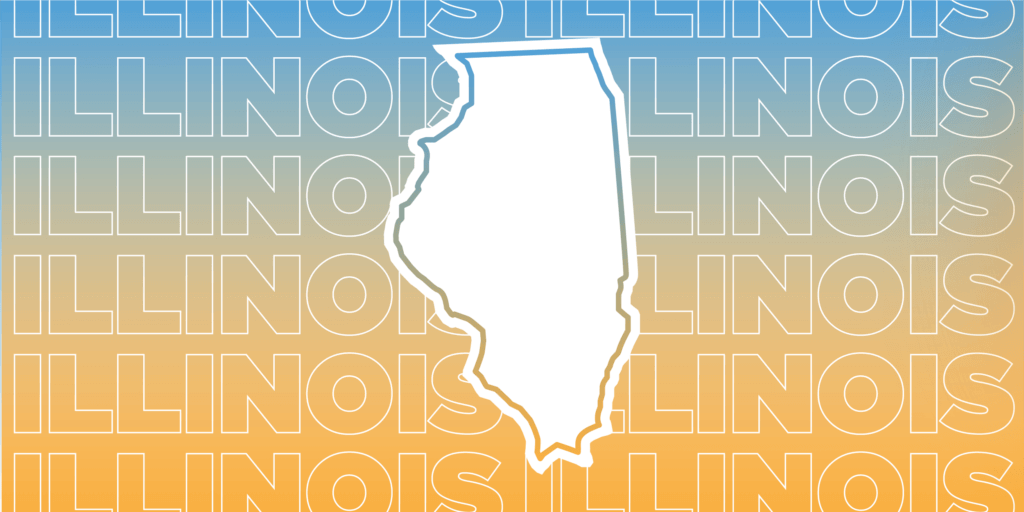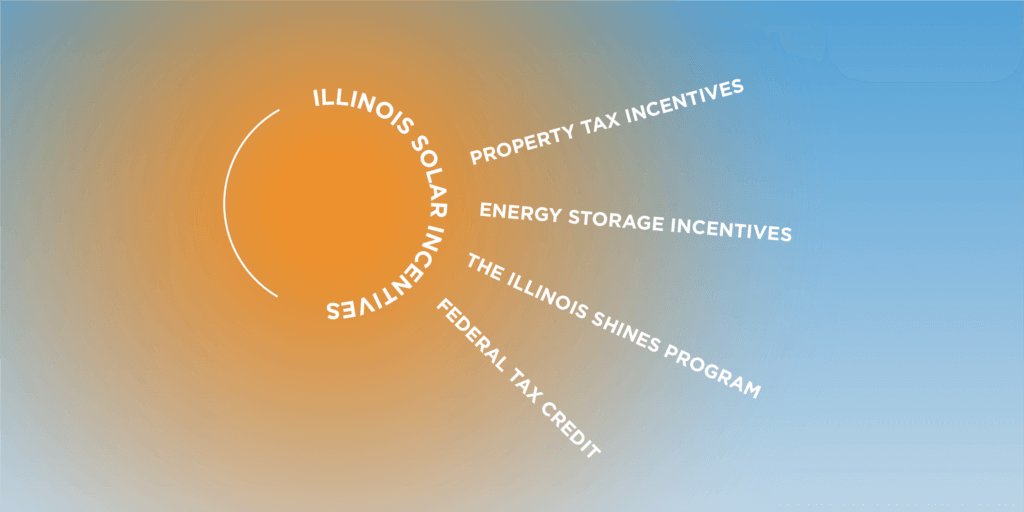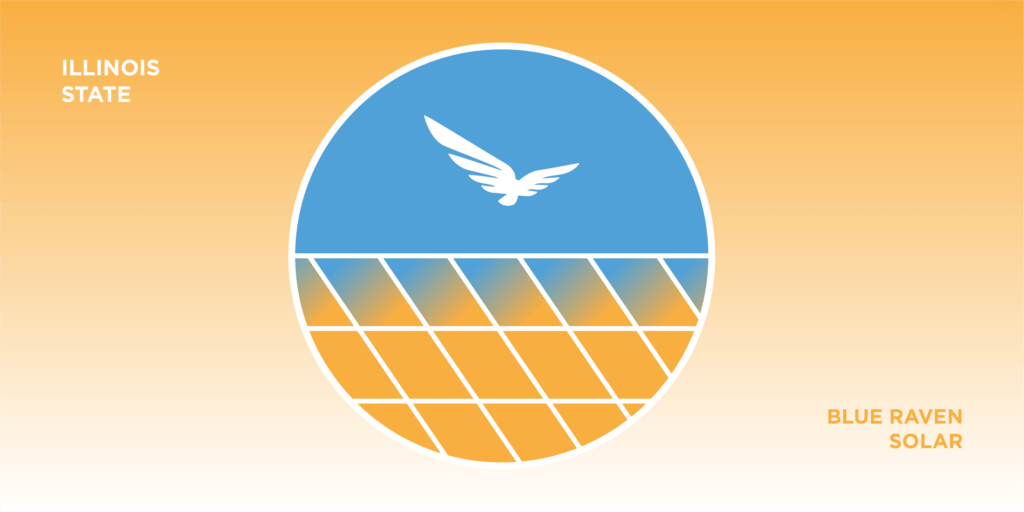

Solar power harnesses the sun’s constant energy, offering a renewable resource for homes. Solar panels capture and convert this energy into usable power, providing dual benefits: savings on utility bills and a positive environmental impact.
The state of Illinois offers multiple solar incentives to decrease the costs of making the switch. Additional incentives like net-metering continue to keep solar energy rewarding throughout the 25+ years lifespan of the solar panels. Before we dive into Illinois-specific incentives, let’s first look at the federal incentive available to all U.S. homeowners, including those in Illinois.

Federal Tax Credit
Homeowners in all states (within the United States of America) can take advantage of the Residential Clean Energy Tax Credit (formerly called the Federal Investment Tax Credit, or ITC). Those who purchase their solar panel systems with cash or through a solar loan can receive a rebate of 30% of the cost of their solar panels on their federal taxes. This is a non-refundable credit, meaning it reduces your tax liability but doesn’t result in a refund if the credit exceeds the taxes you owe.
In addition to the federal tax credit, Illinois residents can apply for and experience state-specific solar incentives, including:
- Property Tax Exemption
- The Illinois Shines Program
- Net Metering Programs and Policies
- Energy Storage Incentives
- Illinois Solar For All
Property Tax Incentive
Installing rooftop solar panels will increase the value of your home as you’re adding an asset which will provide power for decades to come. But, while solar panels will increase your home’s value, they will not increase your property taxes.
This Illinois solar incentive ensures you will not be penalized with higher taxes when you choose to install clean solar energy.
The Illinois Shines Program
When a solar panel system is installed, it has the potential to produce a certain amount of megawatt-hours (MWh) of electricity over its lifetime. This expectation is based on an evaluation of how many solar panels are installed, the amount of sunlight the solar panels are predicted to receive, shade affecting the solar panels, and other factors.
The Illinois Shines program allows homeowners with solar panels to earn Solar Renewable Energy Certificates (SRECs) based on the expected energy production of their system over 15 years. These SRECs can be sold to electricity providers, offering an additional financial benefit to solar panel owners
To participate in the Illinois Shines program solar incentive, homeowners must fulfill these requirements:
- They must use an approved vendor.
- They must apply to be a part of the program as there are limited spots.
- They must be prepared to wait for payment due to processing times and waitlists.
SREC rates decrease slightly each year, so joining the Illinois Shines program sooner rather than later will benefit homeowners more.
Net Metering Programs and Policies
Illinois offers state-wide net-metering programs, enabling homeowners to increase their savings after their rooftop solar panel system is installed.
Net-metering is a program you can take advantage of when your solar panels produce more energy than you need to power your home. Through this program, you can sell excess energy to your utility company, which provides energy credits for the extra energy your solar system adds to the utility grid.
Investor-owned utility companies in Illinois—including ComEd, Ameran, and MidAmerican—offer net-metering to solar panel customers. These companies offer a one-to-one credit ratio for excess energy production over 40 kilowatt-hours.
If you are not served by one of these major investor-owned utilities, it’s important to reach out to your local utility provider for specific information about their net metering policies. Municipal utilities and rural electric cooperatives may have different rules and regulations regarding solar energy and net metering.
However, net-metering does not reduce other kilowatt-hour-related charges, and the net-metered credits expire annually. Net-metering reduces supply charges (the cost of actual energy required in the home) but it does not affect delivery charges (the cost to bring energy to the home).
Energy Storage Incentives
When homeowners install solar panels, they also have the option to add or install solar batteries. Solar batteries store excess energy produced by photovoltaic (PV) panels.
When sunshine is not directly available to a solar panel system—such as on a cloudy day or at night—your home needs an energy source. It can use energy from the electrical grid, or, if you have a solar battery, it can use stored energy your solar panels have produced.
The largest utility company in Illinois, ComEd, offers a solar battery storage incentive, and batteries over 3 kilowatt-hours are eligible for the 30% federal tax rebate. ComEd also offers one-time payments of $250 per kilowatt-hour for solar battery storage systems installed by their customers, up to 2,000 kilowatt-hours. Illinois homeowners who benefit from this energy storage incentive will only receive net-metering credits to lower energy supply charges, not energy demand charges.

Clean, Sun-Powered Energy is within Reach
Illinois offers several solar incentives to homeowners looking to switch to clean, renewable solar power. These solar incentives lighten the financial load, freeing you to experience utility savings over the lifespan of your solar panels.
At Blue Raven Solar, we walk you through each step of the solar panel process to make it simple and hassle-free. Our solar experts keep you informed from consultation and design to the installation and energization of your solar panels. When Illinois’s solar incentives are combined with the federal tax rebate and Blue Raven Solar’s flexible financing options, solar power can be a reality for you and your home.
If you’re ready to talk about installing solar panels, contact a Blue Raven Solar representative for a no-cost, no-obligation quote.



Sorry, the comment form is closed at this time.